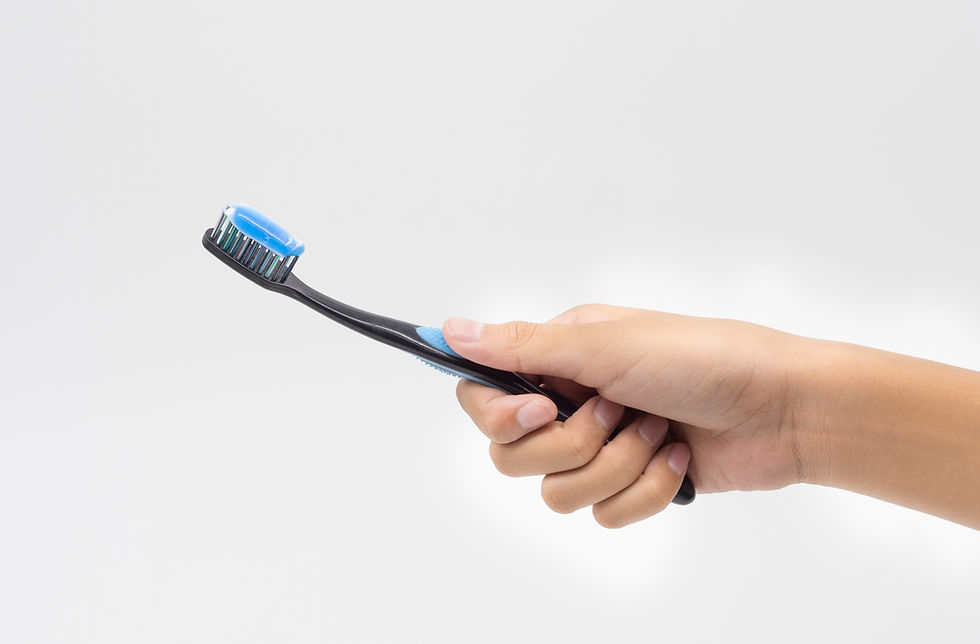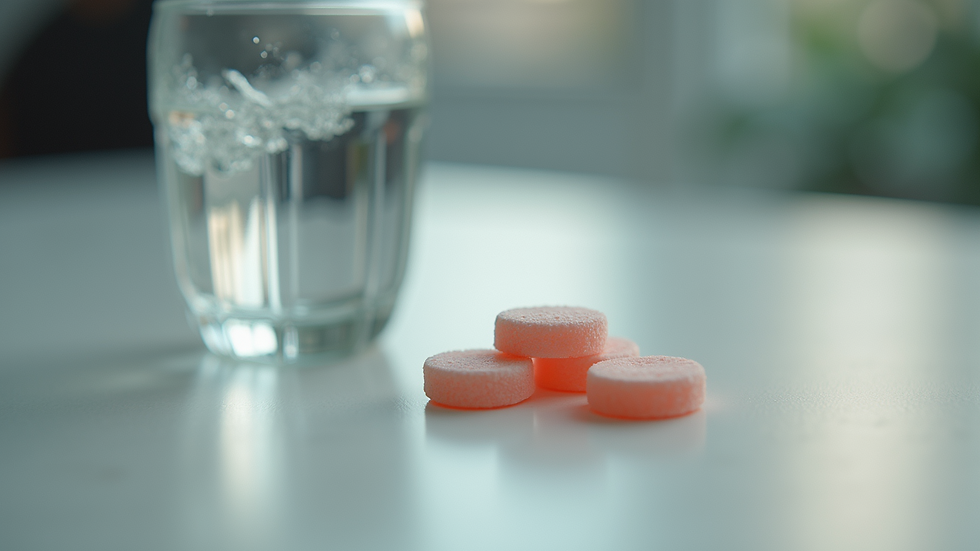How to Maintain a Healthy Mouth Every Day
- Jane Peterson
- Aug 25, 2025
- 3 min read
Maintaining a healthy mouth is essential for overall well-being. A clean and healthy mouth not only helps you avoid dental problems but also boosts your confidence and improves your quality of life. Simple daily habits can make a significant difference in keeping your teeth and gums in top condition. This guide will walk you through practical steps to maintain a healthy mouth every day.
Daily Habits for a Healthy Mouth
Good oral hygiene starts with daily habits that protect your teeth and gums. Brushing your teeth twice a day with fluoride toothpaste is the foundation of oral care. Use a soft-bristled toothbrush and replace it every three months or sooner if the bristles become frayed. Brushing removes plaque, a sticky film of bacteria that causes tooth decay and gum disease.
Flossing once a day is equally important. It cleans the spaces between your teeth where a toothbrush cannot reach. If traditional floss is difficult to use, consider interdental brushes or water flossers as alternatives.
Rinsing your mouth with an antibacterial mouthwash can reduce bacteria and freshen your breath. However, mouthwash should not replace brushing or flossing but rather complement them.
Drinking plenty of water throughout the day helps wash away food particles and keeps your mouth moist. Avoid sugary drinks and snacks, as sugar feeds harmful bacteria that produce acids damaging to your teeth.

Nutrition and Lifestyle Tips for a Healthy Mouth
What you eat and drink has a direct impact on your oral health. A balanced diet rich in vitamins and minerals supports strong teeth and healthy gums. Foods high in calcium, such as dairy products, leafy greens, and almonds, help strengthen tooth enamel.
Vitamin C is vital for gum health and can be found in citrus fruits, strawberries, and bell peppers. Avoid excessive consumption of acidic foods and drinks like citrus juices and soda, as they can erode enamel over time.
Smoking and tobacco use are major risk factors for gum disease and oral cancer. Quitting smoking improves your oral health and reduces the risk of serious dental problems.
Chewing sugar-free gum after meals can stimulate saliva production, which helps neutralise acids and repair early tooth decay.

What do dentists recommend for dry mouth?
Dry mouth, or xerostomia, occurs when saliva production decreases. Saliva is crucial for protecting your teeth and gums by washing away food particles and neutralising acids. Dentists recommend several strategies to manage dry mouth:
Stay hydrated by drinking water regularly throughout the day.
Use saliva substitutes or oral moisturisers available over the counter.
Avoid caffeine, alcohol, and tobacco, as they can worsen dryness.
Chew sugar-free gum or suck on sugar-free candies to stimulate saliva flow.
Maintain excellent oral hygiene to prevent cavities and infections.
If dry mouth persists, consult your dentist as it may be a side effect of medication or an underlying health condition.
Regular dental check-ups are essential to monitor and manage dry mouth effectively.

The Role of Regular Dental Visits in Maintaining a Healthy Mouth
Visiting your dentist regularly is a key part of maintaining a healthy mouth. Dentists can detect early signs of dental problems such as cavities, gum disease, and oral cancer before they become serious. Professional cleanings remove tartar buildup that brushing and flossing cannot eliminate.
During your dental visit, your dentist will also provide personalised advice on improving your oral hygiene routine. They may recommend specific products or treatments based on your individual needs.
Most dental professionals suggest scheduling check-ups every six months, but your dentist may advise more frequent visits if you have ongoing dental issues.
Practical Tips for Effective Mouth-Care
Incorporating effective mouth-care into your daily routine is easier than you might think. Here are some actionable tips:
Set a timer to brush for at least two minutes twice a day.
Use a fluoride toothpaste to strengthen enamel.
Floss before brushing to remove debris and plaque.
Replace your toothbrush regularly to maintain cleaning efficiency.
Limit sugary snacks and drinks to reduce acid attacks on your teeth.
Use a mouthwash recommended by your dentist.
Stay hydrated and avoid habits that dry out your mouth.
Visit your dentist regularly for check-ups and professional cleanings.
For more detailed advice and products to support your oral health, explore trusted resources on mouth-care.
Maintaining a healthy mouth every day is achievable with consistent effort and the right knowledge. By following these guidelines, you can enjoy a bright smile and healthy gums for years to come.




Comments